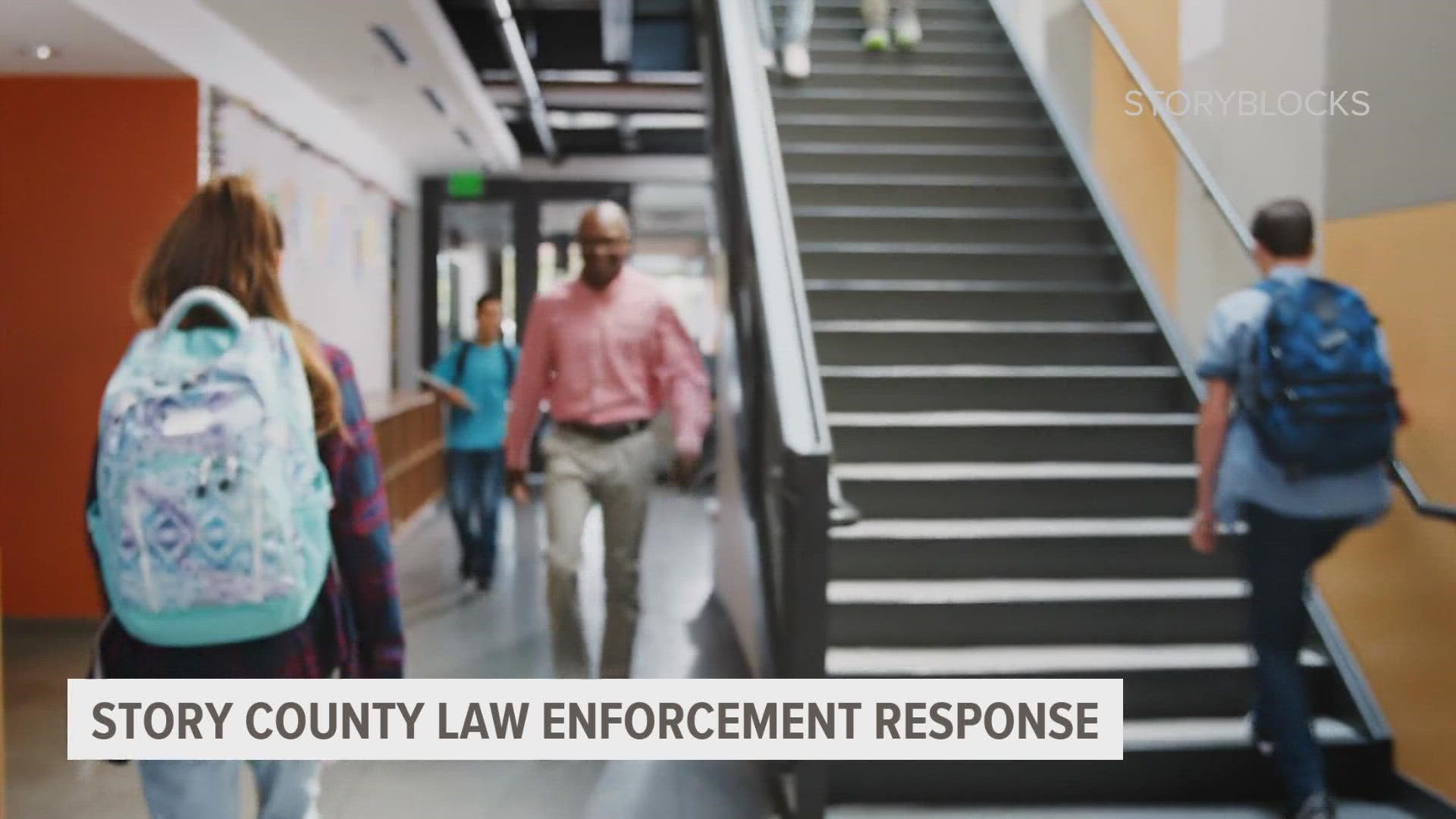STORY COUNTY, Iowa — The scenes out of Uvalde, Texas, are weighing on the hearts and minds of many, including Captain Nicholas Lennie of the Story County Sheriff's Office.
"Tragic events like this really make us reflect, look back at our policies, explore what we're doing for training," he said.
According to Lennie, that preparation and training have evolved over the years.
"Back in the days of Columbine, it was not uncommon for you to treat a situation like that, like a barricaded situation," he said.
That meant waiting for the right law enforcement team to arrive before entering a school.
Not anymore.
"As soon as we get there, we're entering that school by ourselves. We're trained in the solo tactics, and we're trying to go in there and find that threat and stop that threat immediately," he said.
That training happening on school campuses across the county whenever possible.
Teachers and students get yearly instruction, too, through a program call ALICE.
"The goal is to increase survivability. The goal is to empower the teachers and the students to make the best decisions for themselves in the moment," Lennie said.
Then there's new technology the sheriff's office has introduced over the past few years. That includes emergency radios at every Story County School.
"They can push an emergency button that we have at the top of this radio," Lennie said. "That immediately sends an alert out to every law enforcement officer that has a radio on them, along with EMS and fire."
There are proactive measures too. Story County students, parents and staff have access to an app called P3 Campus that allows them to file anonymous reports.
"Anytime you see an action, or hear something said that consciously makes you think about it, that is enough to report it," he said.
Across the state, there is more to come, according to Gov. Kim Reynolds. On Friday, she spoke about the latest measures, including making digital versions of school campus layouts more accessible to first responders.
"...In an electronic format, in a secure platform, so that our first responders and our law enforcement would be able to have access to that immediately if we had a random shooter in the school," Reynolds said.
The sheriff's office also said it's adding more medical response training with a program called "Stop the Bleed."

